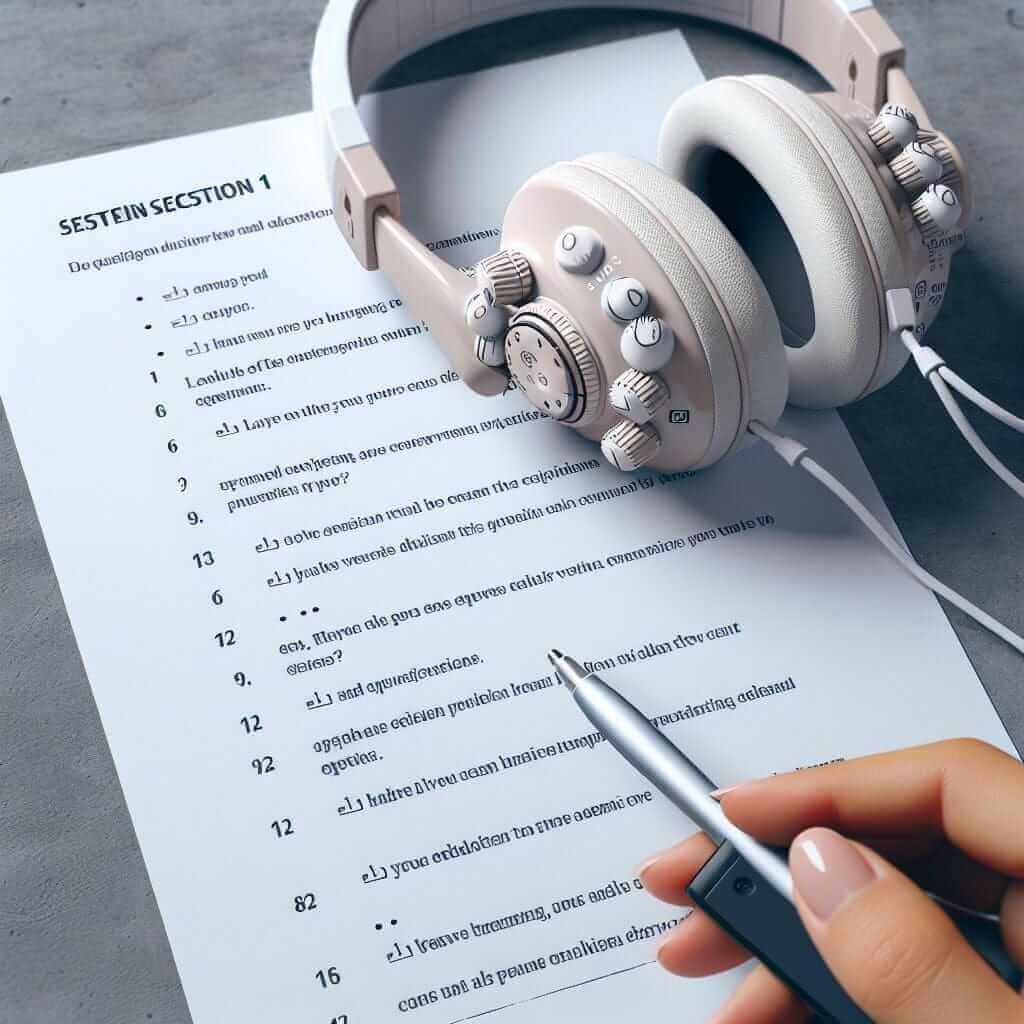The IELTS Listening test can be daunting, especially Section 1. This section, focused on everyday social situations, tests your ability to understand information exchange in a conversational context. While it might seem simple, it requires focus and a strategic approach. As an IELTS tutor with over 20 years of experience, I’m here to share my insights and tips to help you confidently conquer IELTS Listening Section 1.
Understanding IELTS Listening Section 1
This section features a conversation between two people, often in a casual setting like a phone call about travel arrangements or a dialogue about joining a sports club. You’ll be presented with a scenario and asked to listen to the conversation to answer 10 questions, which might be multiple-choice, sentence completion, or note completion.
Why is Section 1 Important?
- Foundation for the Test: It sets the tone for the listening test and eases you into the exam environment.
- Focus on Details: It assesses your ability to pick out specific information from a conversation.
- Common Language Use: It exposes you to everyday vocabulary and conversational English, crucial for life in an English-speaking environment.
Mastering the Art of Listening: Effective Strategies
Here’s how to approach Section 1 effectively:
1. Utilize the Preparation Time:
- Read Carefully: Don’t just skim through the questions. Understand the context, identify keywords, and anticipate potential answers.
- Predict Information: Think about the type of information you might need to listen for (names, dates, numbers, locations).
2. Active Listening is Key:
- Focus on Keywords: Train your ears to catch the keywords you identified during preparation. They often signal crucial information.
- Don’t Dwell on Missed Answers: If you miss an answer, don’t panic! Move on to the next question. You’ll have time to review at the end.
3. Pay Attention to Paraphrasing:
- Expect Different Words: The speakers might use different words or phrases to express the same information as presented in the questions.
- Identify Synonyms and Paraphrases: Train yourself to recognize different ways of expressing the same idea.
4. Practice Note-Taking Skills:
- Develop a System: Find a note-taking method that works best for you (using abbreviations, symbols, etc.).
- Keep it Concise: Note down only the essential keywords and numbers.

Illustrative Examples from IELTS Listening Tests:
Let’s look at some question types you might encounter:
1. Form Completion:
- Scenario: A customer calling a travel agency to book a flight.
- Question: Name of the passenger: ___.
- Audio: “Booking for… let me see… yes, it’s for John Smith.”
2. Multiple Choice:
- Scenario: Two friends discussing a weekend plan.
- Question: What do they decide to do on Saturday afternoon?
a) Go shopping
b) Visit a museum
c) Watch a movie - Audio: “How about the museum in the afternoon? We haven’t been there in ages.” “Sounds good!”
Tips to Boost Your Score:
- Practice Regularly: Listen to various English audio materials, including podcasts, news, and conversations.
- Familiarize Yourself with Accents: IELTS uses a range of accents, so expose yourself to diverse English pronunciation.
- Time Management: Practice completing the section within the allotted time to avoid rushing during the actual test.
- Review Your Mistakes: Analyze your practice tests to understand your weaknesses and work on them.
Conclusion:
Mastering IELTS Listening Section 1 is achievable with focused preparation and effective strategies. Remember, consistent practice, active listening, and familiarity with question types are your keys to success. Keep practicing, and you’ll be well on your way to achieving your desired IELTS score. Good luck!